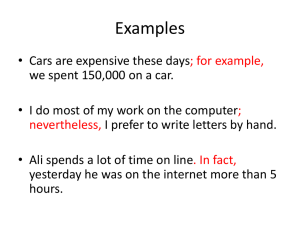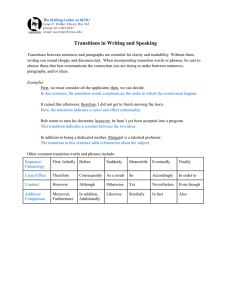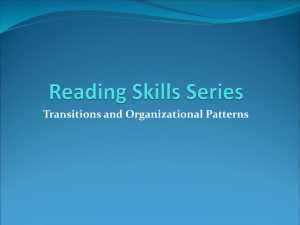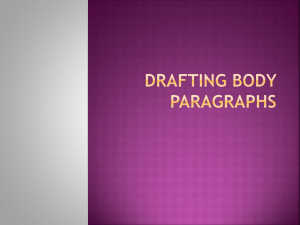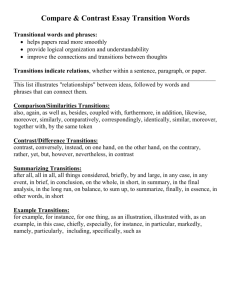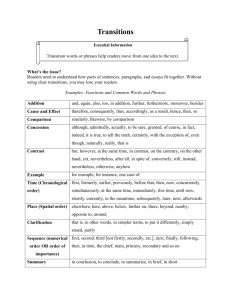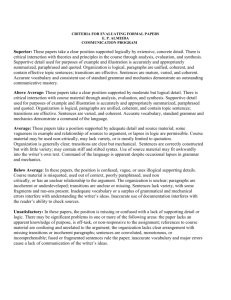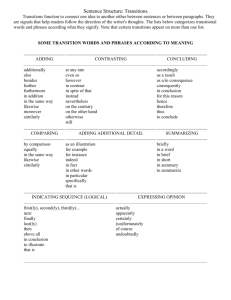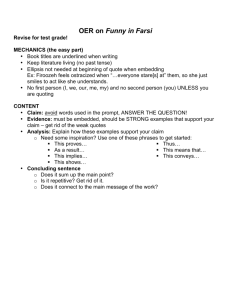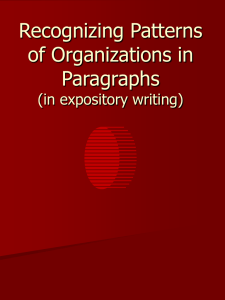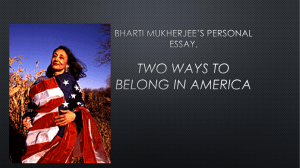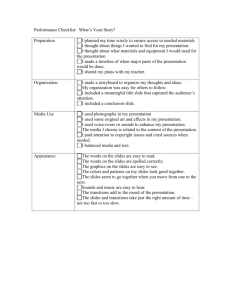Self-Editing Worksheet: Improve Your Essay Writing
advertisement
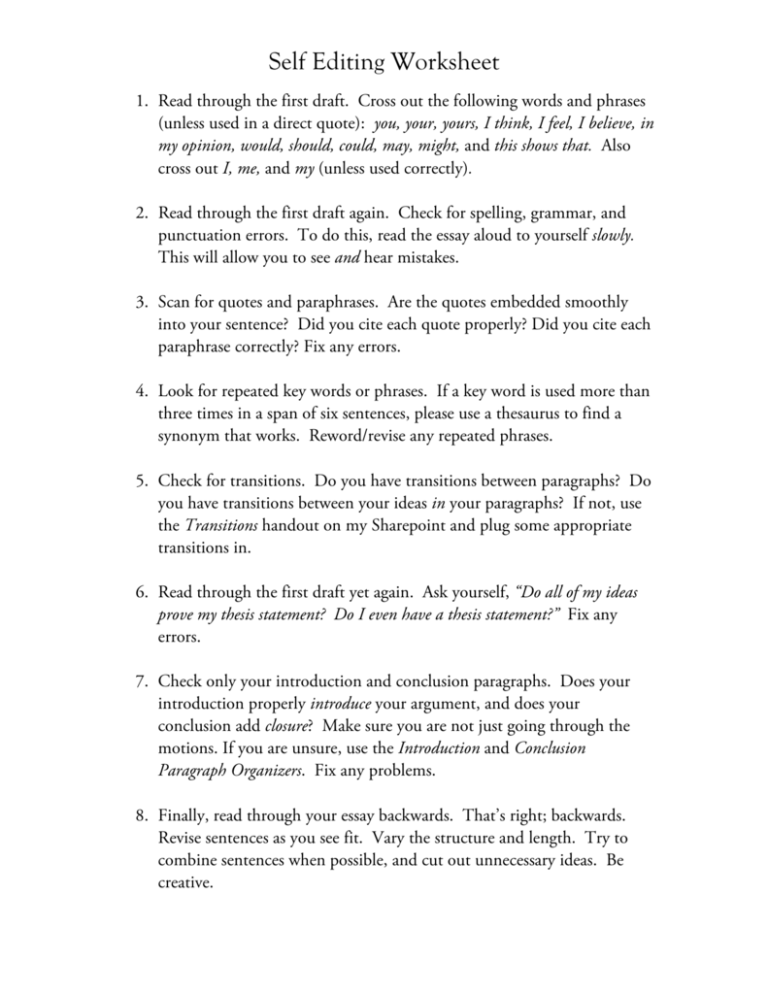
Self Editing Worksheet 1. Read through the first draft. Cross out the following words and phrases (unless used in a direct quote): you, your, yours, I think, I feel, I believe, in my opinion, would, should, could, may, might, and this shows that. Also cross out I, me, and my (unless used correctly). 2. Read through the first draft again. Check for spelling, grammar, and punctuation errors. To do this, read the essay aloud to yourself slowly. This will allow you to see and hear mistakes. 3. Scan for quotes and paraphrases. Are the quotes embedded smoothly into your sentence? Did you cite each quote properly? Did you cite each paraphrase correctly? Fix any errors. 4. Look for repeated key words or phrases. If a key word is used more than three times in a span of six sentences, please use a thesaurus to find a synonym that works. Reword/revise any repeated phrases. 5. Check for transitions. Do you have transitions between paragraphs? Do you have transitions between your ideas in your paragraphs? If not, use the Transitions handout on my Sharepoint and plug some appropriate transitions in. 6. Read through the first draft yet again. Ask yourself, “Do all of my ideas prove my thesis statement? Do I even have a thesis statement?” Fix any errors. 7. Check only your introduction and conclusion paragraphs. Does your introduction properly introduce your argument, and does your conclusion add closure? Make sure you are not just going through the motions. If you are unsure, use the Introduction and Conclusion Paragraph Organizers. Fix any problems. 8. Finally, read through your essay backwards. That’s right; backwards. Revise sentences as you see fit. Vary the structure and length. Try to combine sentences when possible, and cut out unnecessary ideas. Be creative.
